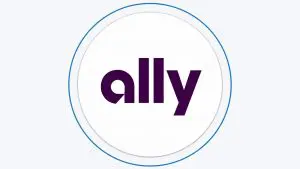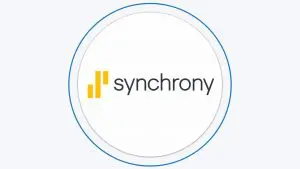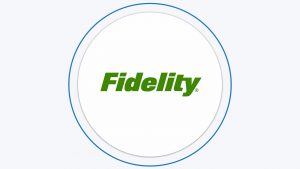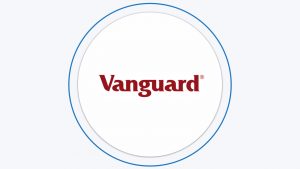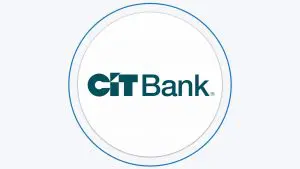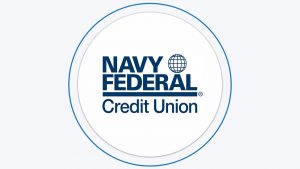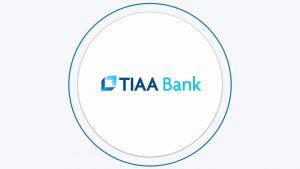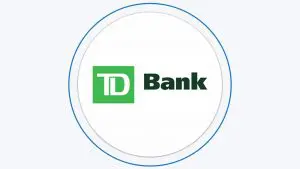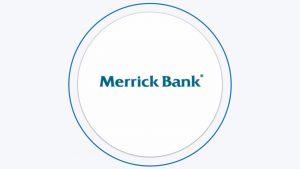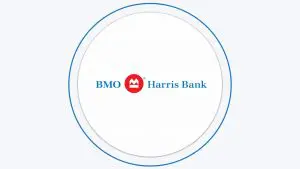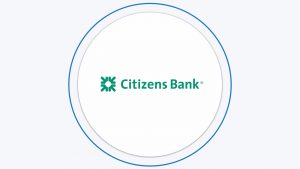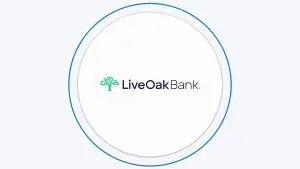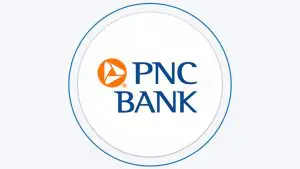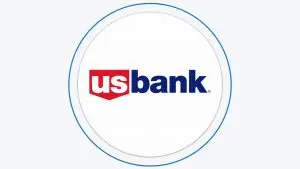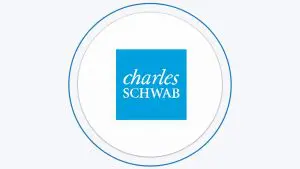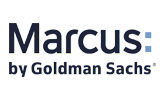Table Of Content
CDs or certificates of deposits are fixed term savings products. These are classified as a safe investment as there is minimal risk that you will lose your investment, particularly if you choose a financial institution with FDIC coverage.
You will receive a specified APY or rate of return on the balance in your CD account, with many CDs offering interest that is compounded daily to maximize your returns.
Compare 5-Year CD Rates
A five-year CD means that it has a five-year term, so your money is tied up for five years. If you do need some or all of your money before this maturity date, you will incur an early withdrawal penalty, which is usually several months of interest.
After five years, when your CD matures, you will have the option to withdraw all or some of your funds or renew for another five year CD.
Financial Institution | 5-Year CD APY | Minimum Deposit |
|---|---|---|
4.00% | $1,500 | |
3.75% | $500 | |
3.50%
| $0
| |
3.50% | $0 | |
4.28% | $500 | |
3.20% | $1,000 | |
3.80% | $2,500 | |
4.15% | $5,000 | |
3.50% | $0 | |
3.75% | $0 | |
1.50% | $250 | |
3.65% | $500
| |
1.75% | $50 | |
3.40% | $1,000
| |
3.65% | $1,000 |
How Much You Can Earn With 5 Year CD?
Most CDs have interest that compounds daily, which can help bolster your returns, but this will not compensate for a far lower rate. So, it is always a good idea to shop around to see which banks, credit unions and financial institutions are offering the best 5 year CD rates.
In our CD calculator below, you can calculate earnings based on the expected rate and see how your deposit rows over time:
* Make sure to adjust APY, terms and deposit
Top Offers From Our Partners
What Are the Main Drawbacks of a 5 Year CD?
There are several potential drawbacks of a five year CD, which may influence whether it is the right product for you.
- Tied into Rates: When you take out your CD, you lock in your rate, which may seem attractive now. However, rates can fluctuate significantly, particularly over a period of several years. If the rates change, you may find that your CD rate is not the most attractive.
- Not Necessarily Offering the Best Rates: While many financial institutions offer the best CD rates for longer term products, this is not necessarily the case. If you look carefully at the rates, you may find that you are getting the same or only a slightly higher APY with a five year CD compared to a one or two year CD, even if you deposit a large sum of money in Jumbo CD.
- Long Term Investment: A lot can change in five years and while you may not anticipate needing the money now, this could change in a few years. Unfortunately, any withdrawals before the five year maturity date will incur a penalty. Here are the excped penalties for the top 5 year CD options:
Financial Institution | Early Withdrawal Penalty For 60 Months CD APY |
|---|---|
Bread Financial
| 365 days of interest
|
Marcus
| 180 days of interest
|
Capital One Bank
| 6 months of interest
|
Discover Bank
| 18 months of interest
|
PenFed Credit Union | 365 days / 30% of dividends
|
Sallie Mae | 180 days of interest |
BMO Harris
| 545 days of interest |
Ally Bank
| 150 days of interest
|
American Express Bank | 540 days of interest
|
Chase Bank
| 365 days of interest
|
CitiBank | 180 days of interest
|
5-Year CD vs. Savings Account: Things To Consider
If you’re considering CDs, you may wonder how a five year CD stacks up against a savings account, but unfortunately, there is no easy answer to this question. It depends entirely on what CDs and savings accounts you’re looking at.
If the savings account in question offers a low APY and has a monthly maintenance fee, a five year CD is bound to look attractive. On the other hand, if the savings account offers comparable or better rates and there are no withdrawal restrictions, the CD may not be a good idea.
Some things to consider before opting for either a savings account or a CD include:
- Minimum initial deposit: Many banks have a minimum amount you need to deposit to open a CD account, which may or may not be achievable for you.
- Ability to continue saving: If you don’t have much cash now, but you have made plans to save money each month, a CD is not the right choice for you, as you can’t deposit additional funds.
- Maintenance Fees: Although unusual, some banks do charge a maintenance fee on CDs, but they are more common with savings accounts.
- Withdrawal restrictions: Ideally, you’ll not withdraw money from your CD for the five year term, but it is worth checking if there are withdrawal restrictions on the savings account you’re considering.
As we can see in the table below, there are differences in APY between 5 year CD to savings account:
When You May Want to Skip a Five Year CD
Of course, there are also situations when a five year CD may not be the best product for you. These include:
- Rates are on the rise: If inflation and therefore interest rates are on an upward trend, you may not want to open a five year CD. Locking in your rate works both ways and if the rates are continually being increased, you may regret signing up for the same rate for five whole years.
- You may need the cash: If there is a possibility that you may need some or all of your funds before your CD matures, committing to a five year CD is not a good idea. Early withdrawal penalties can be as much as 365 days of interest, so depending on when you make the withdrawal, you could lose all of the interest you’ve accrued. In a worst case scenario, if you don’t have enough accumulated interest to cover the penalty, the remainder could come out of your savings fund!
- The rate isn’t competitive: If there is no difference in rate between a one year CD and a five year CD, it doesn’t really make sense to commit your money for longer.
Financial Institution | 60 Months CD APY | Savings Account APY |
|---|---|---|
Bread Financial
| 4.00% | 4.40% |
CitiBank | 2.00% | 3.70% |
Marcus
| 3.75% | 3.75% |
Capital One Bank
| 3.50%
| 3.70%
|
Discover Bank
| 3.50% | 3.70% |
PenFed Credit Union | 3.20% | 2.90% |
Chase Bank | 2.00% | 0.01% |
BMO Harris
| 0.25%
| 0.01% |
Ally Bank
| 3.50% | 3.60% |
American Express Bank | 3.75% | 3.70% |
FAQs
How much interest does a 5 year cd earn?
As of May 2025, you can get around 4-5% if you lock your money for 60 months. The interest earned on a 5-year CD (certificate of deposit) will vary depending on the bank or financial institution offering the CD.
Typically, the interest rate on a 5-year CD is higher than that of a shorter-term CD but lower than that of a longer-term CD. It's a good idea to shop around and compare rates from different banks to find the best rate for you.
How does a 5 year cd work?
A 5-year CD, or certificate of deposit, is a savings account offered by banks and credit unions that offers a fixed interest rate for a specific period of time, in this case, five years. The interest rate is usually higher than a traditional savings account, but it will not change during the five-year term.
How high will 5 year cd rates go?
It is difficult to predict exactly how high 5-year CD rates will go in the future. Factors such as the overall state of the economy, inflation, and Federal Reserve interest rate policy can all impact CD rates.
Generally, CD rates tend to follow the direction of interest rates set by the Federal Reserve. If the Federal Reserve raises interest rates, CD rates may also increase.
Is a 5 year cd a good investment?
It depends on the current interest rates and your financial goals. A 5 year CD typically offers a higher interest rate than a shorter term CD, but it also ties up your money for a longer period of time. If interest rates are high and you don't anticipate needing the money in the next 5 years, a 5 year CD may be a good investment.
However, if interest rates are low or you may need the money sooner, other investments such as a savings account or money market fund may be more beneficial.
Related Posts
How We Determine the Best 5-Year CD Rates: Methodology
The Smart Investor team conducted an extensive review of banks and credit unions to identify the best 5-year Certificate of Deposit (CD) rates available. We assessed various factors essential for 5-year CDs, focusing on four main categories:
Interest Rates and Terms (50%): We evaluated the interest rates offered by the CD, as well as the terms and conditions associated with the investment. Factors considered included the annual percentage yield (APY), minimum deposit requirements, penalties for early withdrawal, and any special terms or features offered by the CD. CDs offering higher APYs and favorable terms received higher ratings in this category.
CD Features (20%): This category assessed the features and benefits offered by each CD, such as the ability to ladder CDs, automatic renewal options, and the availability of add-on deposits. We also considered any additional perks or benefits provided by the CD, such as loyalty bonuses or rate bump-up options. CDs with a wide range of features and flexibility earned higher scores.
Customer Experience (20%): We examined the ease of opening a CD account, communication with customer service representatives, the usability of online banking platforms (if applicable), and the responsiveness of customer support. Banks or credit unions with user-friendly interfaces, responsive support, and efficient online platforms received higher ratings.
Financial Stability (10%): Our team analyzed each bank or credit union's financial stability and reputation. Factors considered included the institution's credit ratings, financial strength ratings from agencies such as Moody's or Standard & Poor's, and any recent regulatory actions or negative news. Banks or credit unions with strong financial stability and a positive reputation received higher ratings in this category.
In each of these categories, we assigned weights to various features and qualities to ensure a comprehensive evaluation of each 5-year CD.

